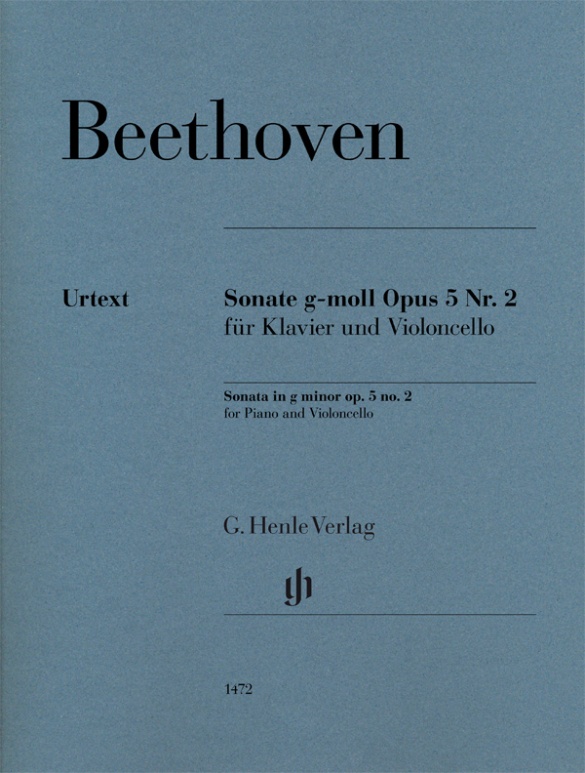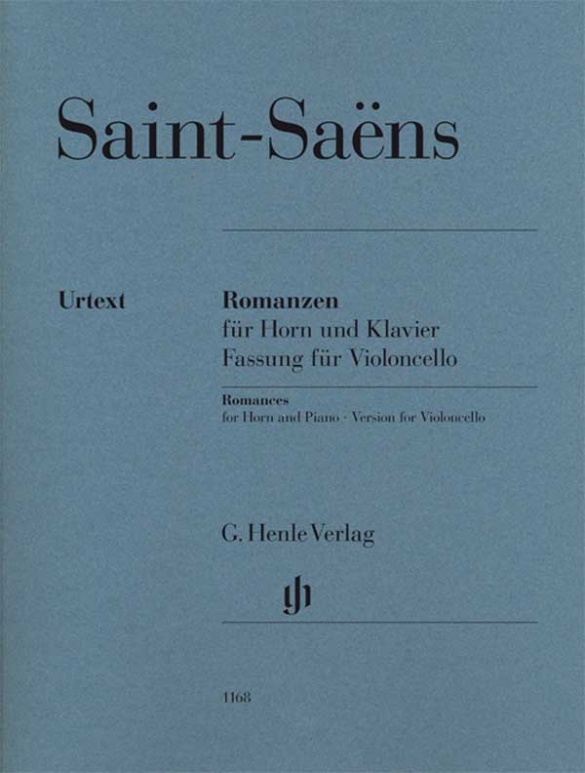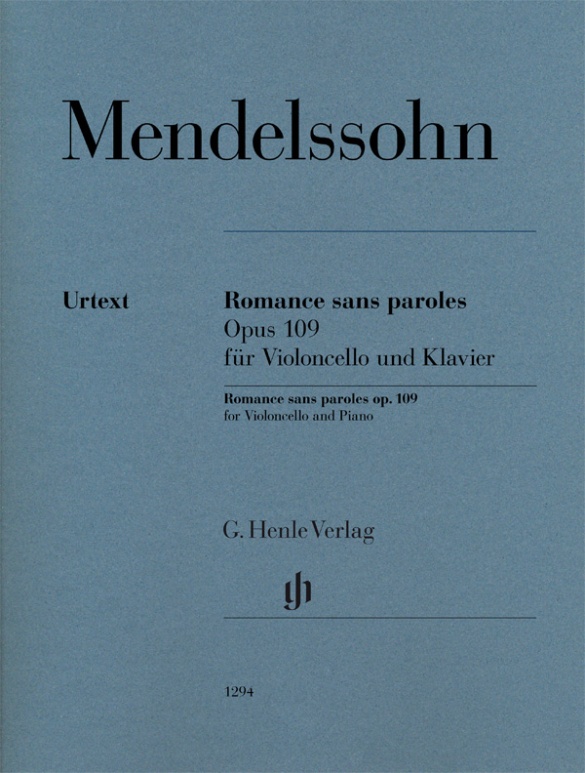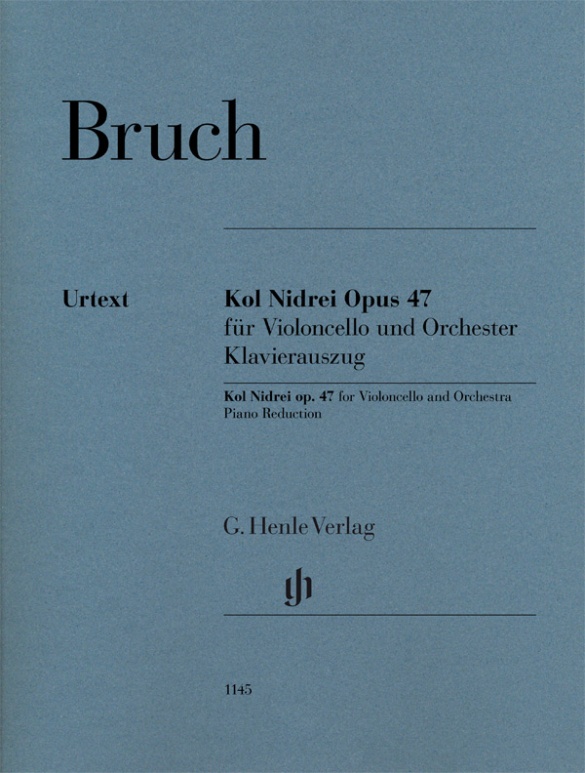

Max Bruch
Kol Nidrei op. 47 for Violoncello and Orchestra
Aside from his popular Violin Concerto no. 1, “Kol Nidrei” numbers among Max Bruch’s most famous compositions. The melancholy “Adagio after Hebrew melodies” was written in 1880 for the cellist Robert Hausmann. It treats two old Jewish songs whose extraordinary beauty proved deeply moving to the Protestant Bruch, by his own admission. The tenor cello sound is the ideal medium for the voice of a Jewish cantor, and thus to this day “Kol Nidrei” offers every cellist a wonderful opportunity to make the instrument “sing”. In this text, based on the first edition of 1881, “Kol Nidrei” appears for the first time in an Urtext edition substantiated by scholarly research, for which not just the musical sources, but also numerous letters and documents from the Max Bruch Archive were consulted. Christian Poltéra was able to be procured for the markings in the solo part.
Read more about this edition in the Henle Blog.
Content/Details
About the Composer
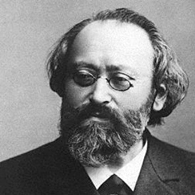
Max Bruch
A German composer of the Romantic period. Stylistically, his works outline a counter-aesthetic to the New German School. His violin concerti are particularly significant, but he also wrote numerous choral works, cantatas, oratorios, songs, stage works and orchestral pieces.
| 1838 | Born in Cologne on January 6. He received his first musical training from his mother, a singer. |
| from 1849 | Music instruction from Heinrich Carl Breidenstein. Writes many compositions even though still a child. |
| 1852 | Scholarship recipient of Frankfurt’s Mozart Foundation. |
| 1853–57 | Studies composition with Ferdinand Hiller in Cologne. |
| 1858 | Premiere in Cologne of his opera “Scherz, List und Rache” (“Jest, Cunning, and Revenge”), op. 1. |
| from 1858 | In Leipzig he associates himself with those around Mendelssohn. |
| 1862 | Moves to Mannheim. |
| 1863 | Premiere in Mannheim of his opera “Die Loreley,” op. 16. |
| 1865–67 | Music director in Koblenz. Composes his Violin Concerto no. 1 in G minor, op. 26. |
| 1867–70 | Court musical director in Sondershausen. Composes his Symphony no. 1 in E-flat major, op. 28, dedicated to Johannes Brahms, and Symphony no. 2 in F minor, op. 36 (both in 1870). |
| 1870–78 | Freelance composer in Berlin and Bonn. Composes the oratorio Odysseus, op. 41 (1871/72). |
| 1879/80 | Composition of the Fantasy in E-flat major, op. 46 (Scottish Fantasy) for violin and orchestra. |
| 1880–83 | Director of the Philharmonic Society in Liverpool. |
| from 1883 | Travels to the United States. Director of the Breslauer Orchesterverein (Wrocław Orchestral Society). |
| from 1891 | Director of the composition masterclass at the Berlin Academy of the Arts. Honorary doctorate from Cambridge University (1893), and membership of the Académie des Beaux Arts (1898). |
| 1907 | Vice-President of the Academy of the Arts, Berlin. |
| 1920 | Dies in Berlin on October 2. |
About the Authors
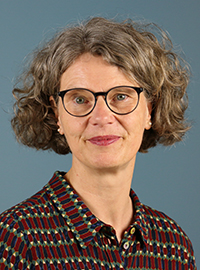
Annette Oppermann (Editor)
Dr. Annette Oppermann, born in 1965, trained as a music dealer in Frankfurt am Main and studied historical and systematic musicology as well as modern German literature at Hamburg University.
From 1993 to 1996 she worked as an editor for Sony Classical International in Hamburg; from 1996 to 1999 she was a doctoral candidate in the postgraduate programme Textkritik at the Ludwig-Maximilians-Universität in Munich, in January 2000 she earned her doctorate with a dissertation on “Musikalische Klassikerausgaben” (Hans-Joachim Marx, Hamburg). From 2000 to 2008 she worked as a research associate at the Joseph Haydn-Institut in Cologne, and was editor of the Oratorio “Die Schöpfung” in the Complete Edition of Joseph Haydn’s Works. Since February 2008 she has been an editor at G. Henle Publishers in Munich, with a particular focus on vocal music, chamber music and books.
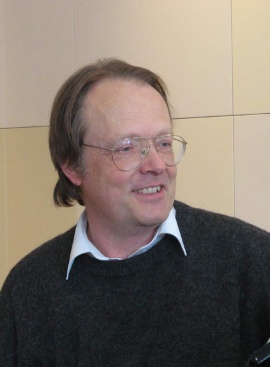
Johannes Umbreit (Piano reduction)
Prof. Johannes Umbreit studied the piano at the Musikhochschule in Munich. From 1987 onwards he was a regular accompanist at courses given by Wolfgang Schneiderhan, Thomas Brandis, Ljerko Spiller, Igor Ozim, Olga Woitowa, Ernő Sebestyén, Walter Nothas, F. Andrejevsky, Denis Zsigmondy and Zakhar Bron amongst others. He has appeared in numerous radio and TV broadcasts and plays chamber music with members of the Bavarian State Orchestra, the Munich Philharmonic Orchestra and the Bavarian Radio Symphony Orchestra.
He is on the jury of different international competitions and has been invited to several international music festivals. Umbreit was a teacher for almost ten years at the Musikhochschule in Munich and at the same time a lecturer for chamber music and piano accompaniment at the Richard Strauss Conservatory. Since 2008 he has been a lecturer at the Hochschule für Musik und Theater München. As the long-serving managing director of the Richard-Strauss-Gesellschaft, he was made an honorary member of the board in 2009. In May 2011, the Bavarian Minister of Culture appointed Johannes Umbreit an honorary professor of the Hochschule für Musik und Theater München on the suggestion of its academic senate.
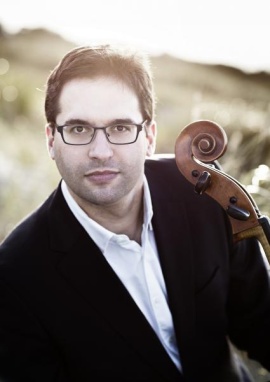
Christian Poltéra (Fingering and bowing for Violoncello)
Product Safety Informations (GPSR)

G. Henle Verlag
Here you can find the information about the manufacturer of the product.G. Henle Verlag e.K.
Forstenrieder Allee 122
81476 München
Germany
info@henle.de
www.henle.com
推荐
autogenerated_cross_selling
本书目其他版本
本书目其他版本


